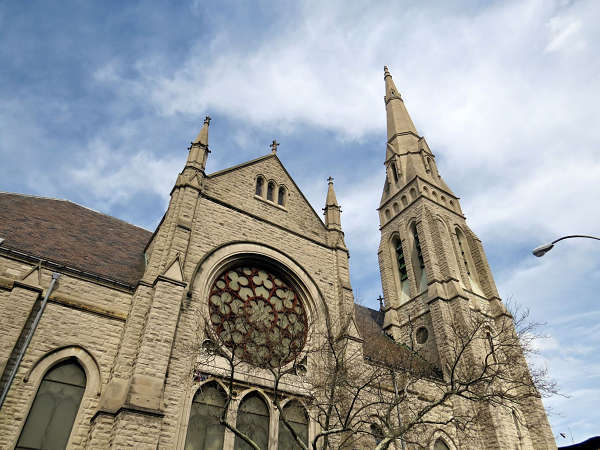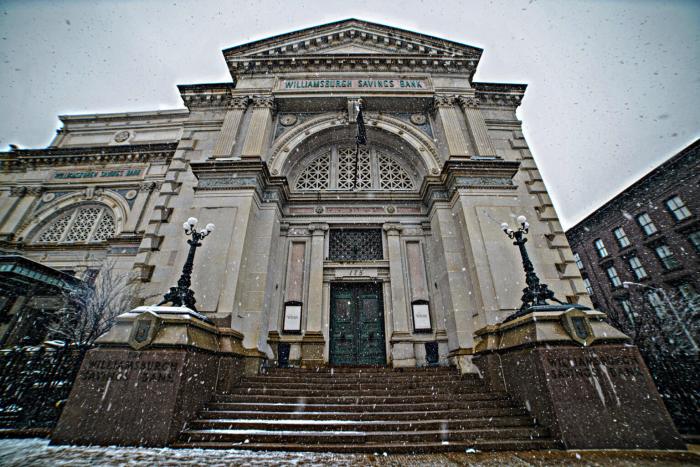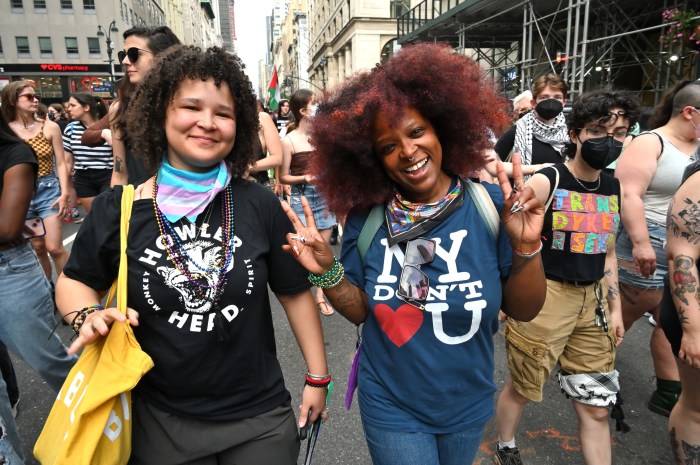The Omicron variant caused significant disruption to the borough’s small business community during what’s traditionally the busiest and most lucrative time of the year, a new study from the Brooklyn Chamber of Commerce found.
Fifty-nine percent of Brooklyn businesses surveyed by the Chamber reported employees calling out sick in the last three weeks, while 77 percent saw a reduction in sales compared to the 2020 holiday season, when the city’s vaccination effort was beginning to ramp up and transmission was not nearly as high as now.
Over half of businesses saw the owner or a member of the staff test positive in the past two weeks — and 61 percent of those surveyed say holiday revenue is down, according to the business boosting organization.
The Chamber surveyed over 100 businesses on the state of commerce as the highly-transmissible Omicron variant has taken hold of the city, bringing with it daily records of new positive cases, a significant increase in hospitalizations, and a crush of people waiting on line at virtually every testing site. The survey was administered from Dec. 23-28.
“Omicron has taken all of us by surprise, and the toll on small businesses during this holiday season has been staggering,” said Chamber President Randy Peers in a statement. “Just when many of our small businesses were hoping to make up some ground for losses incurred throughout the pandemic, they now face another uncertain winter as we head into 2022.”
Forty-six percent of surveyed businesses reduced the footprint of indoor activities, while 20 percent had to temporarily close during the holiday season, the Chamber says.
Amy Glosser, who owns BYKlyn, an indoor cycling fitness studio in Boerum Hill, said that 30 percent of her membership have cancelled their subscription since Dec. 10.
“It’s had a very negative impact,” Glosser told Brooklyn Paper. “We have fewer people in our classes, and many people asking to either cancel or pause their memberships.”
Omicron has been especially painful for BYKlyn, which during the pandemic had pivoted its business model to be primarily outdoors; Glosser said that classes had just been moved back inside for the colder months when the new variant hit.
“We just moved back inside, and this happened,” she said. “We were counting on being inside for a few months.”
Classes are still indoors for now, with fewer bikes and more space between them, open-air ventilation, and masks required.
Keishon Warren, who owns Bklyn Blend, a juice bar with locations in Bedford-Stuyvesant and East New York, said that his holiday season profits are down 10 percent over last year. Several employees have missed work in the past few weeks after testing positive.
“Because of the employees calling out, obviously we had to figure out a different strategy to continue and keep the doors open,” Warren said.
Like 31 percent of business owners surveyed, Warren and his employees have borne the backlash of customers angry with being made to comply with the local mask and vaccination mandates. The city implemented two new vaccine mandates on private businesses on Monday: one required all employees to provide proof of at least one dose of the vaccine by Monday, while the other expands the “Key to NYC” vaccine passport for indoor dining, fitness, and entertainment, requiring full vaccination for those over 12 and at least one dose for those 5-11. Earlier this month, the state reinstituted a mask mandate.
“We have to enforce masks,” Warren noted. “We never stopped enforcing it, but with the new mandates, we’re seeing it’s not 100 percent accepted by our customers. So that can be a little stressful at times, just having that conversation.”
More than 125 neighborhoods across the Five Boroughs had a seven-day COVID-19 positivity rate of 10 percent or higher from Dec. 14-20, according to the latest city Health Department data, with approximately 40 communities reporting 500 or more new cases during that time frame.
Despite COVID’s having returned with a vengeance, business owners do not seem concerned that another lockdown is on the way. The environment, they say, feels fundamentally different than March 2020 because COVID is now much more well-understood, and tests and vaccines are widely available, though the sentiment may also have something to do with fatigue over the potential for a shutdown of commerce, which devastated Brooklyn’s small businesses.
“I’m worried, but not too worried because we shifted a lot of our business to deliveries and pickups,” Warren said. “I think that has trained myself, and a lot of my colleagues, to expect the worst and be able to navigate the storm.”


















